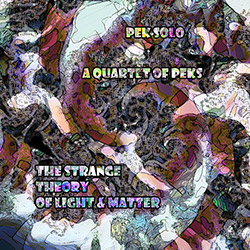
Four times David Peck, as the Boston reedist and multi-instrumentalist leverages concepts from his graphic scores for the Leap of Faith Orchestra designed to limit the excesses of large ensemble in improvisation, following his score of symbols and written instructions through four recorded iterations, listening to and reacting to the previous layers in a virtual quartet of PEKs.
In Stock
Quantity in Basket: None
Log In to use our Wish List
Shipping Weight: 3.00 units
EU & UK Customers:
Discogs.com can handle your VAT payments
So please order through Discogs
Sample The Album:
David Peck (PEK)-Composition, all instruments, recording, mixing, mastering, Clarinets (Soprano, b flat, alto, bass, contralto, contrabass) Saxophones (sopranino, alto, tenor, bass) Double Reeds (oboe, musette, shenai, nadaswaram, guanzi, english horn, contrabassoon, tenor & bass tromboon) Flutes & Whistles (C flute, alto flute, Christmas flute, large bamboo flute, 3 hole Russian flute, penny whistle, Ocarina) Recorders (alto, tenor) Free reed aerophones (sheng, melodica) Other Winds (tarogato, wind siren, game call)
Click an artist name above to see in-stock items for that artist.
Label: Evil Clown
Catalog ID: 9250
Squidco Product Code: 30191
Format: CD
Condition: New
Released: 2020
Country: USA
Packaging: Digipack
Recorded at Evil Clown Headquarters, Waltham, MA on August 2 & 5, 2020
"Every once in a while, there is a break in the crazy schedule here at Evil Clown and I have some time to do a solo album. Our grand olde pal, the Corona Virus has provided such a break in spades.... At the beginning of the year, it appeared that the year would be our busiest yet... We did a bunch of albums in January, February and the first weeks of March, and then I was forced to cancel a bunch of wonderful performances scheduled for the months that followed. So, I caught up all my old business: web site, social media, distribution, and the other non-musical activity required to drive the enterprise. Then I took a month off... my biggest rest since I started up in 2015 after my long hiatus. In mid-May I started up again, conceiving some new means of producing some of the enormous output normally achieved by Evil Clown.
I did some solo performances in the 90s period which presented a few interesting problems since I like to perform in a very long format with many instrument changes. So, I developed a few techniques for continuing the improvisations across instrument changes. Since the Evil Clown reboot in 2015, some of my solo albums have used these methods, but most of them have involved the construction of a mix of electronically processed samples. The samples are made from excerpts of performances by the various Evil Clown Ensembles and some specially recorded in the studio. The mix is completed before the solo track is added and then I make decisions in real time during the improvisation regarding whether to include the sample track or not, and if present, how loud it is relative to the solo. This was a satisfying way to meet my aesthetic intent to make all the decisions in real time - a key element of my Pure Improvisation aesthetic. I also have used similarly prepared mixes as accompaniment tracks for Metal Chaos Ensemble, Mekaniks and other Evil Clown Ensembles.
The shear amount of time made available by not working with other musicians presented opportunity for a different approach to solo records. I decided to leverage compositional concepts used in preparing my graphic scores for the Leap of Faith Orchestra. The scores layout long (75 minutes) forms using simple symbols, and English language direction on a timeline and then the orchestra interprets the directions with the aid of a large sports clock. The result is a sequence of sonorities (textures) resulting from the interpretation. The score is meant to address a fundamental problem of improvisations by large ensembles where the tendency is to produce a wall of sound with insufficient development. The resulting work is both compositional and yet fully improvised, since no melodic, harmonic or rhythmic details are specified
The last two PEK Solo albums, Schisms and Some Truths are Known, explore adapting these orchestral ideas to compositions constructed in the studio... Some Truths are Known is an epic 4 hour work in three 80 minute movements where I use 110 different instruments. These pieces are wonderful soundscapes which move across a wide variety of sonorities, but take a great deal of work compared to the standard Evil Clown method of recording live to 2-track... For Strange Theory of Light & Matter, I decided to do something completely different. This piece is for 4 PEKs. Each PEK plays the complete duration, while listening to the previous tracks... More like how a rock record is typically prepared than my usual processes. The other big change is that I'm using only wind instruments and not the percussion, electronics and strings of Some Truths... This method allows relatively rapid production of the work, while the overdubbing permits a facsimile of normal ensemble interactions, but between PEKs. Look ahead to more solo work in each of these categories (An Orchestra of PEKs, A Quartet of PEKs) as well as some more conventional solo efforts with no overdubbing or studio construction.
Until the stupid virus is over and more normal interactions are possible with other people, Evil Clown will continue to create new works... PEK Solo projects, and a very select number of Leap of Faith or Metal Chaos Ensemble sets involving no more than 3 people. As usual, the chaos of the universe throws problems which require our attention. Expression must be expressed. Music must be made. The chaos of the universe demands it."-Liner Notes by PEK
Artist Biographies
• Show Bio for David Peck (PEK) "PEK (aka David Peck) is a multi-instrument improviser who plays all kinds of instruments including saxophones, clarinets, double reeds, percussion, electronics and auxiliary sound making devices of all kinds. PEK was born in 1964 and started playing clarinet and piano in elementary school. In 7th grade he started saxophones, first on alto, then switching to tenor in high school. He spent 10 years playing in rock bands and studying classical and jazz saxophone with Kurt Heisig in the San Jose CA area before moving to Boston in 1989 to attend Berklee where he studied performance with George Garzone. While Berklee was an excellent place to study harmony, voice training and other important aspects of a conventional formal music training course of study, it was not a very good environment for learning contemporary (or pure) improvisation (apart from his work with George). PEK did find, however, that Boston had a thriving improvisation scene, and it was here that he developed his mature pure improvisation language. During the 90s, PEK performed with many notable improvisers including Masashi Harada, Glynis Lomon, William Parker, Laurence Cooke, Eric Zinman, Glenn Spearman, Raqib Hassan, Charlie Kohlhase, Steve Norton, Keith Hedger, Mark McGrain, Sydney Smart, Matt Samolis, Martha Ritchey, Larry Roland, Dennis Warren, Yuri Zbitnov, Craig Schildhauer, Keith Fullerton Whitman, Leslie Ross, Rob Bethel, Wayne Rogers, Eric Rosenthal, Taylor Ho Bynum, Tatsuya Nakatani, James Coleman, B'hob Rainey and George Garzone. PEK met cellist Glynis Lomon when they played together in the Masashi Harada Sextet which existed between 1990 and 1992. They developed a deep musical connection which they continued following the MHS; first with the Leaping Water Trio for a few years and then with the first version of Leap of Faith in 1994. Leap of Faith was very active in Boston from that time until 2001 and went through a series of several core ensembles which always included both PEK and Glynis. Other key Leap of Faith core members during this period were Mark McGrain (trombone), Craig Schildhauer (double bass), Sydney Smart (drums), Yuri Zbitnov (drums) and James Coleman (theremin). Leap of Faith was always a very modular unit with constantly shifting personnel and many different guests. The early Leap of Faith period concluded in 2001 with a dual bill at an excellent room at MIT called Killian Hall with George Garzone's seminal trio the Fringe. At this time, PEK changed careers for his day gig, returning to college for a computer science degree and beginning to work in the structural engineering industry at Simpson Gumpertz & Heger. He became far too busy to continue the heavy music schedule, and preferring not to do music casually, he entered a long musically dormant period. Flash forward to early 2014. PEK was a regular mail order customer of Downtown Music Gallery, the premiere specialty shop in Manhattan for free jazz, contemporary classical and other new music. While in New York on SGH business, he went down to DMG and had a lengthy conversation with proprietor Bruce Lee Gallanter about the early Leap of Faith period. He then sent Bruce a package of about 15 CD titles from the 90s and was pleasantly surprised when Bruce managed to sell nearly all of it. This public interest in the old catalog spurred PEK into getting back into performance. He reformed Leap of Faith with Glynis Lomon (cello, voice, aquasonic), Yuri Zbitnov (drums) and newcomer Steve Norton (clarinets and saxophones) and started to record and perform in early 2015. Now having access to financial resources always absent in the early period, PEK began to accumulate a huge collection of instruments both for himself and also to expand the palate of Leap of Faith and the other projects soon to follow. He acquired new recording equipment and many new saxophones, clarinets, double reeds, metal and wooden percussion instruments, electronic instruments, signal processing equipment and other sound-making devices from many cultures. He revived his old record label, Evil Clown, and created reissues and new releases for much of the early period work by Leap of Faith and many of his other projects to sell at shows, DMG and the internet (around 100 archival titles). The Arsenal of equipment has a grand purpose: To establish a large scale aesthetic problem to use the instruments to make long form broad palate improvisations with dramatic transformation and development. The very broad palate enables the long improvisations to evolve with very different movements and pronounced development over their length. PEK started the Leap of Faith Orchestra, a greatly expanded Leap of Faith, to achieve this purpose along with a number of smaller ensembles which are sub-units of the full orchestra including String Theory (focusing on orchestral strings), Metal Chaos Ensemble (focusing on metallic percussion), Turbulence (horn players), Mekaniks (electronics) and Chicxulub (space rock). In all, the Evil Clown roster includes over 40 musicians who contribute to one or more of the various projects, with PEK participating in all of them. Leap of Faith has also had some special guests like Steve Swell (trombone), Thomas Heberer (trumpet), Jeremiah Cymerman (clarinet) and Jim Hobbs (alto sax). The Leap of Faith Orchestra happens whenever several of these groups play together at the same time, or the ensemble exceeds 7 or 8 players. The Full Orchestra is a special case discussed below. The current roster is comprised in part of: - Core Leap of Faith: PEK, Glynis Lomon, Yuri Zbitnov (Steve Norton has since left to go to Graduate School) - Percussion: Andria Nicodemou (vibes), Kevin Dacey (perc), Joe Hartigan (perc), Syd Smart (drums) - Strings: Jane Wang (cello), Clara Kebabian (violin), Tony Leva (bass), Mimi Rabson (violin), Kirsten Lamb (bass), Brendan Higgins (bass), Silvain Castellano (bass), Rob Bethel (cello), Kit Demos (bass), Matt Scutchfield (violin), Helen Sherrah-Davies (violin) - Piano: Eric Zinman, Peter Cassino, Emilio Gonzales - Horns: Dave Harris (tuba, trombone), Charlie Kohlhase (saxes), Bob Moores (trumpet), Sara Honeywell (trombone), Forbes Graham (trumpet), John Baylies (tuba), Dan O'Brien (woodwinds), Zack Bartolomei (woodwinds), Kat Dobbins (trombone), Steve Provizer (trumpet, baritone horn), Matt Samolis (flute) - Electronics: Greg Grinnell, Jason Adams (electric bass, electronics) - Guitar: Dru Wesely, Grant Beale, Chris Florio - Voice: Dei Xhrist Evil Clown is documenting the ongoing solutions to this aesthetic challenge by creating limited CD editions and digital download albums of every performance and studio session by this array of ensembles. Interested audience can track the development of the grand scale project over the many releases - over 80 albums recorded and released so far between Jan of 2015 and March of 2017. All of the bands are highly modular, changing personnel and instrumentation with each meeting. The result is an enormous amount of music that shares the same fundamental improvisational language but differs from event to event greatly both in sonority (overall sound) and specific detail. For the full Leap of Faith Orchestra, PEK composes a graphic notation score to guide the improvisation. The full Orchestra is comprised of roughly 20 players from the roster and performs twice a year. Two performances have occurred to date - The Expanding Universe in June of 2016 and Supernovae in November of 2016. Composition for Possible Universes is completed and the work will be performed on May 28, 2017 with another performance (score not yet begun) scheduled for November. The scores use a device called Frame Notation where written English descriptions of the overall sonority desired and simple graphic symbols are given durations for each player on their part along with direction on when to play and when not to play. The directions are put in little boxes called frames which are arranged on a timeline and are simple enough to be immediately understood by the performers. Horizontal lines, called Duration Bars, extend across the page indicating when each Event (the Frame + the Duration Bar) begins and ends. An Event can be intended for the full ensemble, a defined group within the ensemble (for example, Metal Chaos Ensemble), a custom group (for example, Tubas), or an individual (for example, Andria Feature). Parts are the full score annotated with Hiliters so that each player's instructions stand out. They can clearly see their individual instructions, but can also see the big picture, enabling far more knowledge about the pending actions of the rest of the ensemble than typical in pure improvisation. The players track the elapsed time on a very large sports clock. There is no melodic, harmonic or rhythmic information specified. This system allows PEK to compose detailed Ensemble Events without having to notate pitches or rhythms which would require significant rehearsal to accurately achieve." ^ Hide Bio for David Peck (PEK)
7/9/2025
Have a better biography or biography source? Please Contact Us so that we can update this biography.
Track Listing:
1. The Strange Theory of Light & Matter 1:15:41
Improvised Music
Free Improvisation
Boston Area Improvisers
Jazz
Recordings by or featuring Reed & Wind Players
Solo Artist Recordings
Quartet Recordings
Graphic Scores
Evil Clown 2025 RSD Sale
Search for other titles on the label:
Evil Clown.


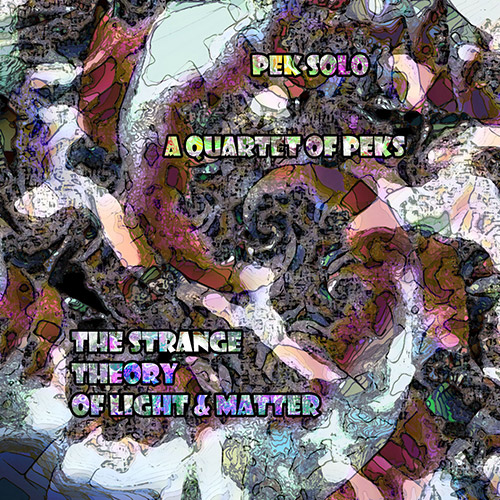
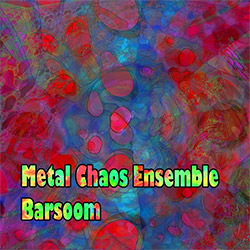
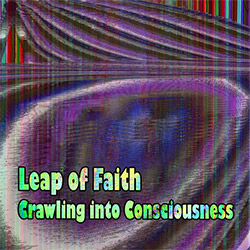

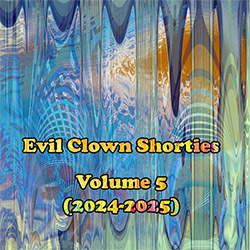
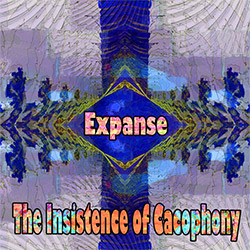
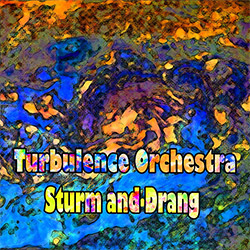
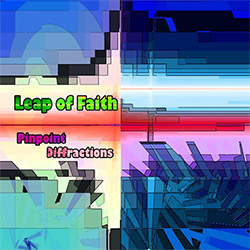

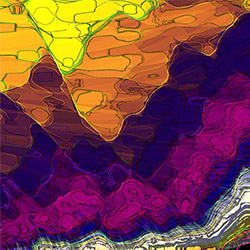
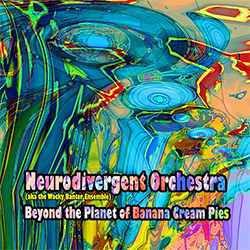
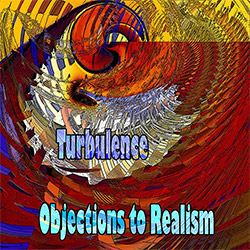


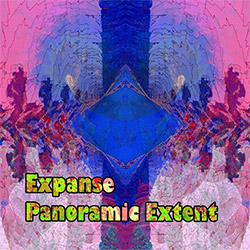
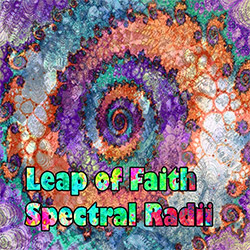
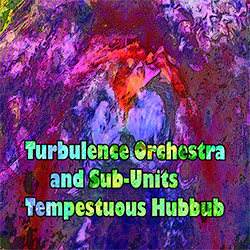
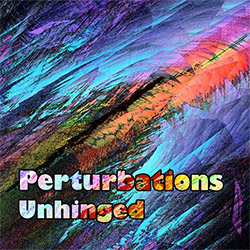







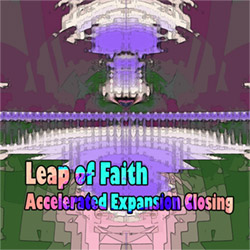
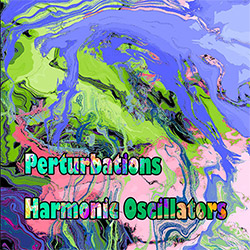




![BlueRing Improvisers: Materia [2 CDs]](https://www.teuthida.com/productImages/misc4/36513.jpg)








![Wheelhouse (Rempis / Adasiewicz / McBride): House And Home [VINYL]](https://www.teuthida.com/productImages/misc4/36462.jpg)
![+DOG+: The Light Of Our Lives [2 CDs]](https://www.teuthida.com/productImages/misc4/36009.jpg)


![Parker, Evan / Jean-Marc Foussat: Insolence [VINYL]](https://www.teuthida.com/productImages/misc4/36398.jpg)










![Deupree, Jerome / Sylvie Courvoisier / Lester St. Louis / Joe Morris: Canyon [2 CDs]](https://www.teuthida.com/productImages/misc4/36404.jpg)



![Eventless Plot | Haarvol: The Subliminal Paths [CASSETTE + DOWNLOAD]](https://www.teuthida.com/productImages/misc4/36232.jpg)










![Eventless Plot | Francesco Covarino: Methexis [CASSETTE + DOWNLOAD]](https://www.teuthida.com/productImages/misc4/36231.jpg)



![Das B (Mazen Kerbaj / Mike Majkowski / Magda Mayas / Tony Buck): Love [VINYL]](https://www.teuthida.com/productImages/misc4/36329.jpg)


![Eternities: Rides Again [CASSETTE]](https://www.teuthida.com/productImages/misc4/36247.jpg)
![Lopez, Francisco: Untitled (2021-2022) [2 CDs]](https://www.teuthida.com/productImages/misc4/36438.jpg)






![Money : Money 2 [2 CDs]](https://www.teuthida.com/productImages/misc4/35894.jpg)




![Klinga, Erik: Elusive Shimmer [VINYL]](https://www.teuthida.com/productImages/misc4/36258.jpg)
![CHANGES TO blind (Phil Zampino): Volume 9 - I Wave on a Fine Vile Mist [CD + DOWNLOAD]](https://www.teuthida.com/productImages/misc4/36061.jpg)

![Wallmart / Rubbish: Asset Protection [split CD]](https://www.teuthida.com/productImages/misc4/35900.jpg)


![+Dog+: The Family Music Book Vol. 5 [2 CDs]](https://www.teuthida.com/productImages/misc4/35897.jpg)
![Kuvveti, Deli : Kuslar Soyledi [CASSETTE w/ DOWNLOAD]](https://www.teuthida.com/productImages/misc4/36107.jpg)

![Brown, Dan / Dan Reynolds: Live At The Grange Hall [unauthorized][CASSETTE]](https://www.teuthida.com/productImages/misc4/36245.jpg)








![Palestine, Charlemagne / Seppe Gebruers: Beyondddddd The Notessssss [VINYL]](https://www.teuthida.com/productImages/misc4/36206.jpg)
![Palestine, Charlemagne / Seppe Gebruers: Beyondddddd The Notessssss [NEON GREEN VINYL]](https://www.teuthida.com/productImages/misc4/36207.jpg)

![Laubrock, Ingrid: Purposing The Air [2 CDs]](https://www.teuthida.com/productImages/misc4/35639.jpg)

![Yoko, Ono / The Great Learning Orchestra: Selected Recordings From Grapefruit [2 CDs]](https://www.teuthida.com/productImages/misc4/35841.jpg)









![Zorn, John / JACK Quartet: The Complete String Quartets [2 CDs]](https://www.teuthida.com/productImages/misc4/35609.jpg)

![Lonsdale, Eden: Dawnings [2 CDs]](https://www.teuthida.com/productImages/misc4/35480.jpg)



![Sorry For Laughing (G. Whitlow / M. Bates / Dave-Id / E. Ka-Spel): Rain Flowers [2 CDS]](https://www.teuthida.com/productImages/misc4/35985.jpg)

![Rolando, Tommaso / Andy Moor : Biscotti [CASSETTE w/ DOWNLOADS]](https://www.teuthida.com/productImages/misc4/36106.jpg)


![Electric Bird Noise / Derek Roddy: 8-10-22 [CD EP]](https://www.teuthida.com/productImages/misc4/35970.jpg)








![Elephant9 : Mythical River [VINYL]](https://www.teuthida.com/productImages/misc4/34624.jpg)



![Elephant9 with Terje Rypdal: Catching Fire [VINYL 2 LPs]](https://www.teuthida.com/productImages/misc4/35355.jpg)
![Deerlady (Obomsawin, Mali / Magdalena Abrego): Greatest Hits [VINYL]](https://www.teuthida.com/productImages/misc4/34876.jpg)







![Surplus 1980: Illusion of Consistency [CD]](https://www.teuthida.com/productImages/misc4/35069.jpg)
![Staiano, Moe: Away Towards the Light [VINYL + DOWNLOAD]](https://www.teuthida.com/productImages/misc4/35037.jpg)
![Coley, Byron: Dating Tips for Touring Bands [VINYL]](https://www.teuthida.com/productImages/misc4/17906.jpg)

![Lost Kisses: My Life is Sad & Funny [DVD]](https://www.teuthida.com/productImages/misc4/lostKissesDVD.jpg)